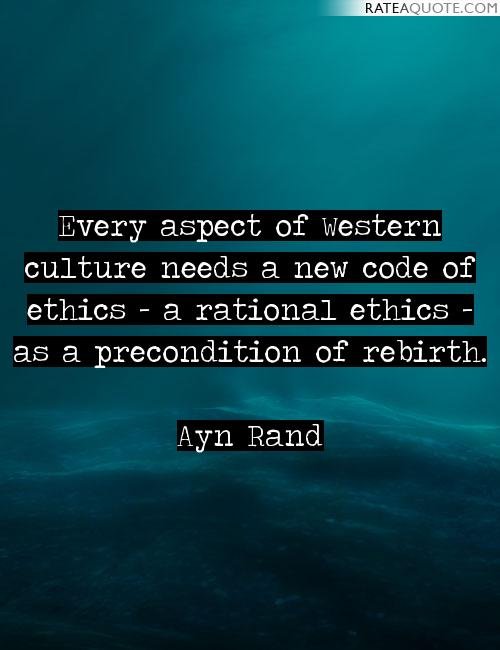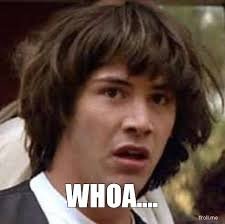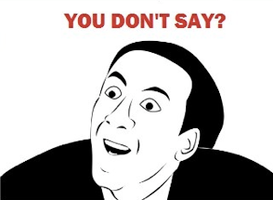Rational Ethics, Dehydrated
People are often intimidated by logic. They should not be. Everyone uses logic, they just don't realize it.

Most of my effort so far has been to establish a framework of rational ethics which builds upon two premises: human beings are self-actuated free-will actors and human beings are by our nature as higher social primates able to establish moral principles by which we can govern our behavior. However, as I have recently been told, my dry and logical approach may not be very helpful outside of rationalist or voluntaryist circles. So I am writing this to bring this dry logic down to you, the Average Joe reader while also seeking to lift you up to the full realization of your own rational processing abilities.
To that I am put in mind of a conversation I had with my dear, sweet mother. We were discussing my assertion that all cops are bad cops and she pointed out that some -- indeed, many -- cops are good people and that I was treating all those individuals on the basis of a collective identity. We explored her counters in greater depth and I pointed out some fallacies she was clinging to and she responded, to paraphrase, that she "doesn't like discussions where people are focusing on 'fallacies' and arrogant logic mumbo-jumbo". I was at once struck by the fact that she wanted, by claim, an argument with no rules of argumentation yet in practice what she really wanted was to not be bothered with the names of those rules; after all her initial argument was in fact an accusation that I'd engaged in reification fallacy.
It occurred to me that many people I've argued with do this: they may claim to be interested in the rules of argumentation but they sure as hell demand that they be followed. The reason is that because people have little if any familiarity with the rules, the rules exist for a reason and human beings, as rational thinkers (and they are; you may argue the degree but if you try to argue they are not, you'd only be proving my point by attempting to do so), follow these rules instinctively.
For you see, logic is a tool for getting to the truth. Your brain is also a tool for getting to the truth; you've an instinctive desire to know with certainty as well as an entire host of thinking tools and techniques to get to that truth. Thus my mother was able to spot an apparent fallacy -- despite her feeling that fallacy-spotting was not "nice discussion".
Yet she also in the long run was relying on fallacious thinking. And what is "fallacious thinking"? Quite simply when our logical tools collide and get the wrong answer; fallacies occur because the human brain's pattern-spotting mechanism can often times get a little over-enthusiastic and spot patterns that are not there (fallacies), in much the same way as it's facial recognition process tells you that reflection of trees on the window is a ghostly face.
In short? You, dear reader, are in fact logical. Logic is not the territory of computers and programs and stoic Vulcans; it is merely the mental tools we use to get to the truth.
Rational Ethics
So this brings us back to my search for a rational ethics framework and why that should matter to you. "Rational Ethics" is nothing more than the effort to create an ethical framework rooted in truth.

Thus we build an ethical framework based not on dictates from an unproveable gods, angels or spirits, we ignore appeals from feelz and seek to start with basic, knowable facts and create an ethical framework based upon those facts.
The simplest fact that can be known, from the human standpoint, a priori is, of course, that the world exists. Past that, we establish as our basis that humans are actors that move of their own free will with no ability to move or even accurately know the will of others. Finally, we establish that human beings are able to form, apply and adhere to ethical concepts and that the social nature of our species means that not only do we understand "right and wrong" but that applying that understanding allows us to cooperate on a global scale to become the dominant species, that "right makes might".
In Average Joe speak, I mean that "rational ethics" is simply the idea of building an ethical framework on the basis of things that people know for truth in a "no, shit, Sherlock" sort of way; a system of universal ethics build upon the obviousness of human nature. It's as simple as admitting the existence of reality (or, perhaps, the reality of existence).

Then all you have to do is admit that only you control your actions, that this is true for everyone, and that humans have the ability to understand "right and wrong" even if they differ on what things are right or wrong. It's as simple as that; rational ethics, natural rights and voluntaryism all build upon those simple, basic truths that everyone knows by virtue of being human.
It is my belief that this, when we strip away appeals to emotions or divine authorities, will result inevitably in the voluntaryist ethos. However, my goal -- both for myself and for you, dear reader -- is to explore this concept (and please, comment if you disagree!) until we can be sure we have reached the truth.

Thomas Shirk is a computer programmer, Voluntaryist and aspiring philosopher. Please come back to his blog or follow him on Facebook and Steemit for regular updates on Voluntaryism, capitalism and other philosophical insights
"arrogant logic mumbo-jumbo.... ot be bothered with the names of those rules"
Yeah. It's not arrogant, but it just adds confusion of another term to define an error in thinking. I don't use the terms often. Explaining the error in thinking, the fallacy, and why its an error, is simpler, because then its actually explained. ;)
Logic is indeed used by all, in varying degrees of usefulness to use the tool. Logic is non-contradiction, using identity of things as they are and not another. These are basic laws in the universe.
It's the tool to find truth, from the inputs in reality.
People need to distinguish between truth and beliefs, because a belief is not truth. This is crucially important. Right and wrong can be known in objective reality, rather than be subjectively invented and justified based on personal whims, want and desires.
Take care. Peace.